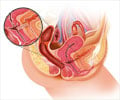- Perianal fistula is most commonly reported in patients suffering from Crohn’s disease can be treated effectively by a new therapy involving Darvadstrocel.
- Darvadstrocel by its expanded adipose stem cells acts in the inflammatory pathways and reduces inflammation.
- The healing process is improved significantly while Darvadstrocel is administered and should be used while other treatments are failed to respond in treating perianal fistula.
The European Medicines Agency (EMA) had approved Darvadstrocel stem cell therapy in treating adult patients with perianal fistula presented with a non-active or mildly active luminal Crohn’s disease, only when other treatment choices showed no response.
It is highly recommended that only medical specialists should be engaged in selecting Darvadstrocel therapy or those who are experienced in diagnosing and treating the conditions where Darvadstrocel is intended to be used for. Although the success rate in healing perianal fistula is higher with this new advanced therapy, the most commonly reported adverse effects are the anal abscess, fistula, pain due to a muscle spasm in the anal area along with a procedural pain.
Crohn’s disease
Crohn’s disease is one of the diseases of Inflammatory bowel disease that occurs due to the inflammation of the digestive tract which affects any part of the mouth to anus. It commonly affects the lower section of the small intestine known as the ileum.The causative origin of Crohn’s disease is not known but believed to occur due to the abnormal reaction of the body immune system. There is no proper treatment for Crohn’s disease but the symptoms can be treated accordingly.
It is estimated that nearly 115,000 people in the U.K alone and more than a million are affected worldwide by this disease.
What are the symptoms of Crohn’s disease?
The major symptoms include- Rectal bleeding
- Abdominal pain
- Diarrhea
- Fever
- Weight loss
What are the Complications of Crohn’s disease?
The common complications that occur due to Crohn’s disease are- Intestinal ulcer
- Obstruction in the intestinal area
- Malnutrition
- Skin problems and pain in the joints
- Growth retardation in children and adolescents
- Manuela Marzo, Carla Felice, et al. "Management of perianal fistulas in Crohn’s disease: An up-to-date review" World J Gastroenterol. (2015) Feb 7; 21(5): 1394–1403.2015 Feb 7. doi: 10.3748/wjg.v21.i5.1394
- Perianal fistula - (https://radiopaedia.org/articles/perianal-fistula)
- Crohn’s Disease - (https://medlineplus.gov/crohnsdisease.html)
Source-Medindia














